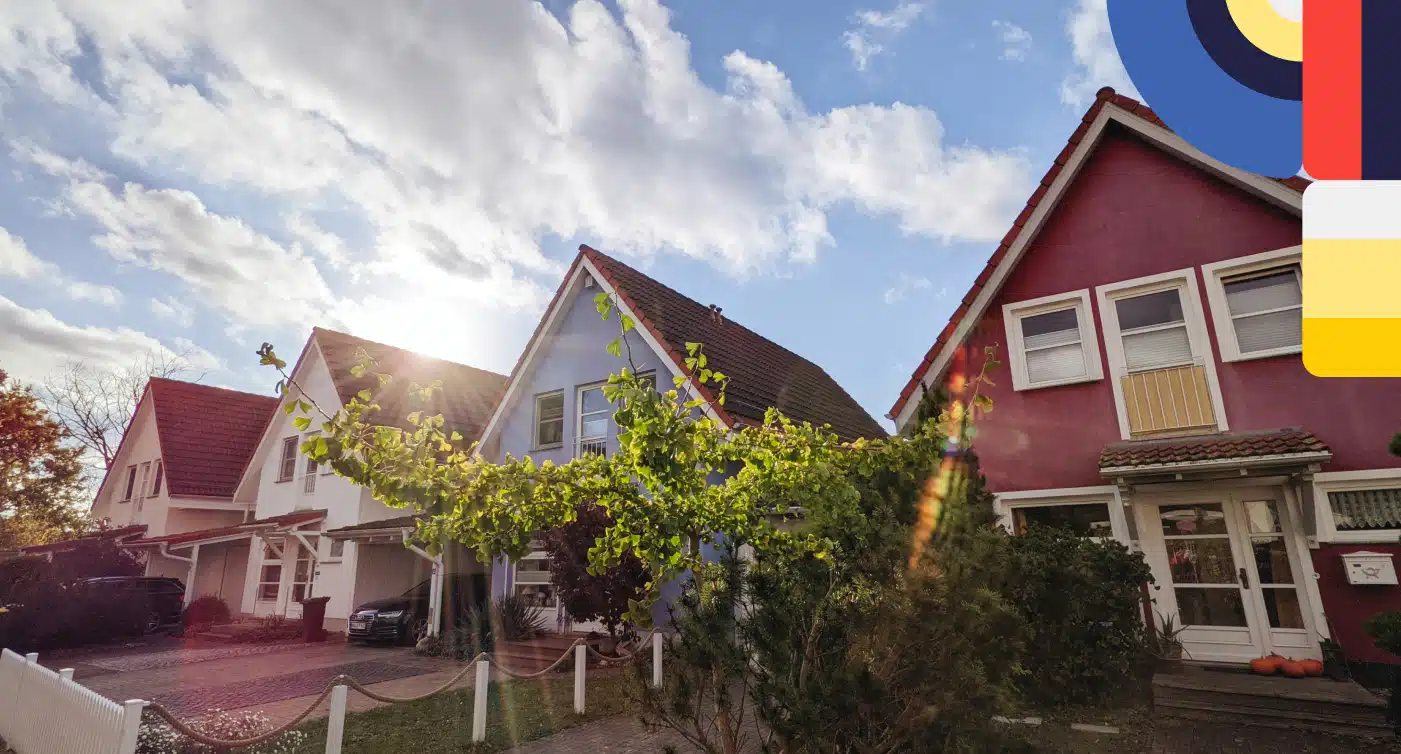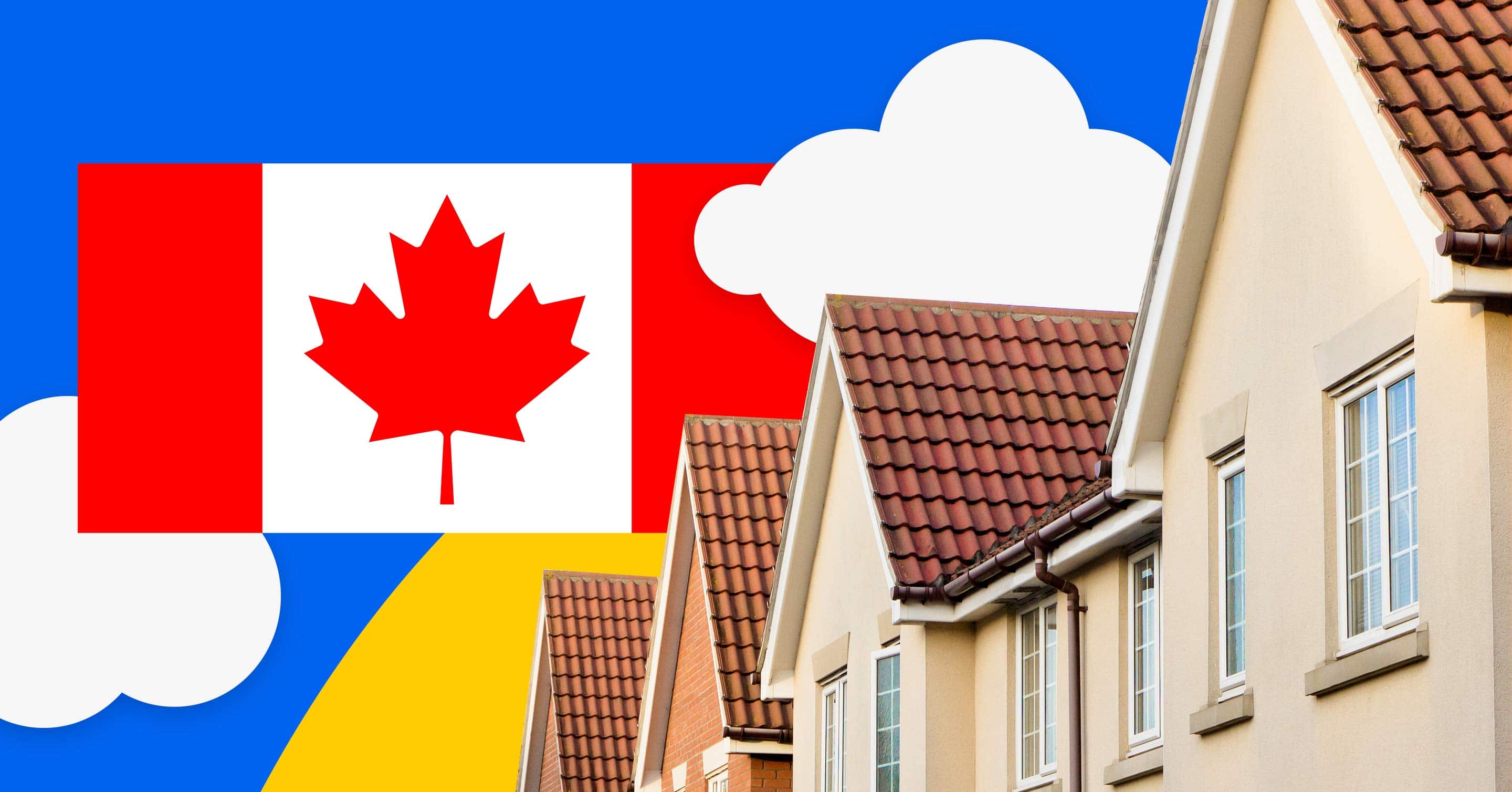Mortgage Basics #Renewal and Refinancing
Mortgage Basics #Renewal and Refinancing
Should you choose a 3-year or 5-year mortgage in Canada 2025?

Table of contents
Are you wondering if you should choose a 3-year or 5-year mortgage? When deciding between a 3-year fixed-rate mortgage and a 5-year fixed-rate mortgage, the length of your mortgage term can significantly impact your overall financial well-being.
While 5-year terms are the most popular option among Canadians, 3-year mortgage terms have gained popularity recently. In this article, we will explore the pros and cons of each mortgage term option to help you decide which one may be right for your unique situation.
Key Highlights
- Factors to consider when choosing between 3 and 5-year mortgages include market conditions, personal goals, and risk tolerance.
- The right choice depends on your individual goals, risk tolerance, and financial situation.
- Review options with a mortgage expert who can help you find the solution that best aligns with your personal situation.
We’re curious…
Should you choose a 5-year or 3-year fixed-rate mortgage?
When deciding if you should choose a 5-year or 3-year fixed-rate mortgage, you should consider what is happening with the state of the market now and what is predicted to happen in the future, and then consider what your personal goals and risk tolerance are. If rates are expected to continue to rise, a 5-year mortgage term may be best. If rates are projected to fall, a 3-year mortgage term may be the best bet.
- If the state of the market indicates that rates will continue to increase, it may be wise to choose a 5-year term to ride out the possibility that rates will become higher. This will eliminate the need to negotiate your rate in a few years when interest rates could be much higher than the one you lock into now.
A longer mortgage term may also better suit your situation if you plan to keep your current home for 5 years or more. Choosing a longer term reduces the number of times you need to renegotiate a new rate and term.
- If the state of the market indicates that rates may decrease, then it may be wise to choose a shorter mortgage term to reduce interest-carrying costs by locking into a lower rate after 3 years.
A shorter term may also better suit your situation if you plan to sell your property within the next 3 years. You will pay a lower penalty to discharge your mortgage on a 3-year term as the number of months remaining on your mortgage will be lower than with a 5-year term.
What are Fixed-Rate and Variable-Rate Mortgages?
Fixed-rate and variable-rate mortgages are the two common types of mortgages that borrowers can choose from when securing financing for their homes.
Fixed-rate mortgages have a fixed interest rate for the entire term. This means that your payment will remain consistent throughout the term. This provides predictability and stability for the borrower since your interest and principal portion of the mortgage payment will remain the same until your term ends.
Variable-rate mortgages have fluctuating interest rates that change with the Bank of Canada’s policy rate changes. With variable mortgages, your interest portion of the mortgage will adjust with changes to your lender’s prime rate.
Your mortgage payments will change as interest rates change if you have an adjustable-rate mortgage (ARM), as your payment is based on a set principal portion and a varying interest portion that will go up or down with changes to your lender’s prime rate.
Your monthly payments will remain the same if you have a variable-rate mortgage (VRM) though the interest and principal portion of your mortgage payment will adjust to account for changes to your lender’s prime rate.
The proportion of your monthly payment going to your mortgage payment’s principal and interest components will fluctuate with changes to your lender’s prime rate during your mortgage term. If the prime rate increases, then your interest component will increase, and your principal component will decrease. If the prime rate decreases, the reverse will happen, and you’ll pay off your mortgage balance sooner.
Advantages and Disadvantages of Different Mortgage Terms
Mortgage terms can range from as short as 6 months to as long as 10 years. The length of your mortgage term will impact your interest rate as you must renew at the end of each term unless the mortgage balance is paid off in full.
The advantages of shorter-term mortgages:
- Typically, interest rates are lower compared to longer terms.
- Prepayment penalties will be lower should you need to break your mortgage before the end of the term.
The disadvantages of shorter-term mortgages:
- It exposes you to higher risk since you’re more impacted by market fluctuations.
- You will need to renew and renegotiate your mortgage rate and terms more often.
The advantages of longer-term mortgages:
- Exposes you to less risk as you are less impacted by market fluctuations.
- You won’t need to renegotiate your mortgage terms and rate as often.
The disadvantages of longer-term mortgages:
- Typically, higher interest rates compared to shorter terms.
- You may be locked into a much higher rate if interest rates fall.
- Higher prepayment penalties if you need to break your mortgage before the end of the term.
Don’t scrap your buying plans
Download our full homebuyer’s guide to navigating high rates!
3-Year Fixed-Rate Mortgages
If you’re in the market for a mortgage, one option to consider is a 3-year fixed-rate mortgage. With this mortgage term, borrowers can benefit from a shorter time commitment and potentially save on interest-carrying costs.
Overview of 3-Year Fixed-Rate Mortgages
A 3-year fixed-rate mortgage is a mortgage that offers borrowers a fixed interest rate for a period of 3 years. Your interest rate and monthly mortgage payments will remain unchanged throughout the 36-month term. Once your term ends, you will need to renew your mortgage and renegotiate new terms and conditions unless the balance is paid off in full.
Pros and Cons of 3-Year Fixed-Rate Mortgages
A 3-year fixed-rate mortgage can be attractive for homeowners looking for short-term stability and potential savings. However, it also has some downsides that should be carefully considered before deciding. Let’s look at the pros and cons of a 3-year fixed-rate mortgage.
Pros
- The interest rate remains unchanged for 3 years, meaning you will have predictable payments for this length of time.
- Lower prepayment penalty when compared to longer terms should you break your mortgage before the term ends.
- No need to worry about payments increasing if interest rates increase during the term.
Cons
- If interest rates fall during the term, you cannot take advantage without paying a prepayment penalty to break your mortgage.
- The rate is fixed for only 3 years, so you may be more exposed to changes in the market. You could face a higher interest rate once your term is up.
- Prepayment penalties for fixed rate terms are generally higher than variable terms meaning you will need to pay a higher prepayment penalty should you need to break the mortgage before the term ends.
- You will need to renegotiate a new term and interest rate more often.
Should You Choose a 3-Year Mortgage Term?
A 3-year mortgage term can be a great option if you expect that interest rates may fall sooner rather than later. If you want or need the flexibility to make short-term plans like selling your home before the end of 3 years is up, choosing a 3-year term will help you save on additional prepayment penalty costs by going with the shorter term.
5-Year Fixed-Rate Mortgages
Another option, and the most popular among Canadians, is a 5-year mortgage term. With this mortgage term, borrowers can benefit from predictability and stability by choosing a longer term.
Overview of 5-Year Fixed-Rate Mortgages
A 5-year fixed-rate mortgage offers borrowers a fixed rate for a 5-year term. Most borrowers are likely to select this term due to conditioning and advertising. As Canada’s big banks are the most popular mortgage lenders, they have conditioned financial planning in the country to think it’s the best choice while keeping it the most widely advertised mortgage option. Pricing on 5-year fixed rates tends to be more attractive as lenders generally provide a larger discount on this term, securing their mortgage clients for longer.
Pros and Cons of 5-Year Fixed-Rate Mortgages
A 5-year fixed-rate mortgage can be attractive for homeowners looking for longer-term stability and predictability. However, it also has some downsides that should be carefully considered before deciding. Let’s review the pros and cons of a 5-year fixed-rate mortgage.
Pros
- The interest rate remains unchanged for 5 years, providing predictability and stability over your mortgage term.
- Less exposure to changes in the market rates since your mortgage is locked for 5 years.
- Less need to renegotiate your mortgage.
Cons
- If interest rates fall during the term, you will be unable to take advantage of lower rates without a significant prepayment penalty to break the mortgage.
- Interest rate differential penalty calculation makes prepayment penalties higher on a longer fixed-rate term than a shorter fixed-rate or a variable-rate mortgage.
- Less flexibility to make changes as you’re locked into a longer term.
Should You Choose a 5-Year Mortgage Term?
A 5-year mortgage term can be a great option if you expect interest rates to increase in the shorter term. If you’re looking for stability and predictability with your mortgage payments, a 5-year term may make the most sense.
It’s a perfect solution for most first-time homebuyers (FTHB) as it gives them time to get used to setting aside money for their new monthly budget in managing mortgage payments, property taxes, and utility bills instead of simply paying rent. If you plan to stay in it long-term, this rate may make the most sense for your situation.
Comparing 3-Year vs 5-Year Fixed Mortgage Rates
Selecting the right mortgage rate can make all the difference. It’s important to weigh your options and choose the one that best aligns with your goals. Comparing 3 and 5-year rates and terms against your short and long-term goals, risk tolerance, and financial situation can help you make the best choice.
| FEATURE | 3-Year Fixed Mortgage Rate | 5-Year Fixed Mortgage Rate |
|---|---|---|
| PAYMENT STABILITY | Your payment remains unchanged for 3 years. | Your payment remains unchanged for 5 years. |
| INTEREST PREDICTABILITY | Predictable interest rate during the term. | Predictable interest rate during the term. |
| INTEREST RATE DIFFERENTIAL (IRD)PENALTY | Unable to take advantage of lower interest rates should they fall during the term without a prepayment penalty. | Unable to take advantage of lower interest rates should they fall during the term without a prepayment penalty. |
| EXPOSURE | Higher exposure risk to changes in the market. | Lower exposure risk to changes in the market. |
| RENEGOTIATION | Need to renegotiate mortgage rates and terms more often. | Need to renegotiate mortgage rates and terms less often. |
| FLEXIBILITY | Less Flexibility over the short-term | Less Flexibility over the short term |
| REMAINING TERM RISK | Lower prepayment penalty should you need to break your mortgage before the term ends. | Higher prepayment penalty should you need to break your mortgage before the term ends. |
So, which option is right for you?
The rate and term you pick will ultimately depend on your short and long-term goals, current market conditions, and risk appetite. Discussing your financial situation and mortgage needs and completing a cost analysis with a mortgage expert is the ultimate recommendation for all borrowers.
A mortgage expert will help you develop a solution that ensures the most suitable solution for your unique situation. As the practicality and desirability of any mortgage depends on each client’s financial situation, it is recommended to have an in-depth conversation with a knowledgeable mortgage expert to determine if your choice suits your needs.
Frequently Asked Questions
Welcome to our Frequently-Asked Questions (FAQ) section, where we answer the most popular questions designed and crafted by our in-house mortgage experts to help you make informed mortgage financing decisions.
Should I choose a 3-year fixed-rate mortgage?
You should consider choosing a 3-year fixed-rate mortgage if you expect interest rates may fall in the near future or if you need the flexibility to make shorter-term plans like selling your home within 3 years.
Should I choose a 5-year fixed-rate mortgage?
You should consider choosing a 5-year fixed-rate mortgage if you are an FTHB, expect interest rates will continue to increase in the short term, or if you are looking for more stability and predictability with your mortgage payments.
What type of mortgage is best for me in 2024?
The best mortgage for you is the one that most closely aligns with your financial situation, short and long-term plans, and risk tolerance. If you have plans to sell your home in the next few years, you may want to consider a shorter term to reduce the prepayment penalty you will pay. If you plan to stay in your home for the long term, you may want to consider a longer term for the stability it provides, ensuring that your mortgage payments remain the same for a longer timeframe.
What are the best ways to save money on a 3-year or 5-year mortgage in Canada?
The best way to save money on a 3- or 5-year term mortgage is to shop around and compare different lenders’ rates and features while understanding the current market’s limitations so you know when you’re getting the best offer.
What are the primary differences between a 3-year and 5-year mortgage in Canada?
The primary differences between a 3 and a 5-year term are how long you are locked into the mortgage and how often you need to renegotiate. Your interest rate may also differ depending on your chosen mortgage term.
Final Thoughts
When it comes to 3- and 5-year mortgages, there is no one-size-fits-all. Each individual has a unique financial situation and different goals and risk tolerances. Of course, market conditions have to be taken into account.
Discussing these options with a mortgage professional often yields the best result in finding your ideal solution. It pays to do your research and shop around before deciding. Reach out to one of nesto’s mortgage experts who can help you decide whether a 3 or 5-year mortgage term is right for you.
Ready to get started?
In just a few clicks, you can see our current rates. Then apply for your mortgage online in minutes!















